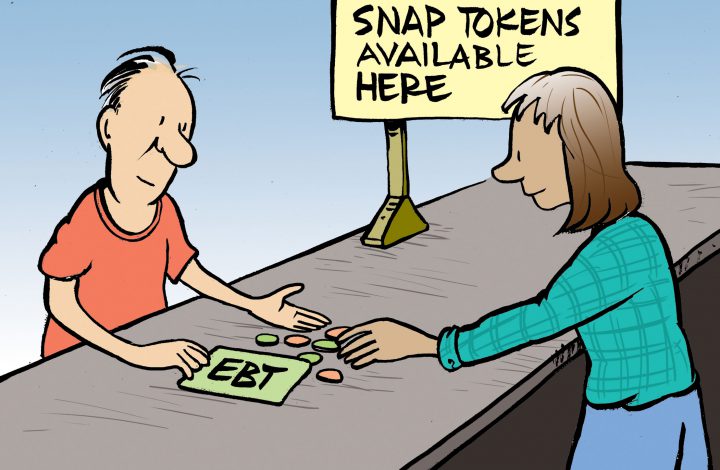Starting a farmers' market business requires meeting some business registration and licensing obligations in order to legally operate in the State of Florida.
A few permitting requirements apply to all businesses, while other permits cover specific business activities, practices, and products. This guide will touch on a few quick and easy steps to legally start a new farmers’ market business such as registering a fictitious name (DBA), selecting one of the options to incorporate a new business, acquiring additional permits to consider, and free resources that guide new business owners through the incorporation process.*
Although a sole proprietor is the most simple and easy form of incorporation, other types of incorporation offer important advantages.
Fictitious Name Registration (DBA)
A business name plays an important role in branding and marketing a farmers’ market business, and many entrepreneurs choose to operate under a fictitious business name known as a ‘DBA’ (Doing Business As). Registering a fictitious name legally connects the business name to the owner and allows the business owner to lawfully operate under the DBA name.
This is particularly useful when opening a bank account with the business name, using the business name in contracts, and using the business name and address (rather than a personal name and address) in product labeling and marketing materials.
Registering a fictitious name in Florida is as easy as visiting the Division of Corporations at the Florida Department of State (widely known as Sunbiz), following a few online prompts, and paying a fee. While a fictitious name is not required to run a business in Florida, any business operating under a name other than the name of the individual business owner must have the fictitious name registered with the State. The Sunbiz website also allows residents to search for a name to ensure that it is not already in use by another business owner in Florida.
Do I Need a DBA?
A DBA is:
|
A DBA is NOT:
|
| Permission to operate your business under a different name than the name your business is legally registered for |
A separate business entity |
| Applied for in the state in which your business is formed |
A way to protect or limit personal liability |
| A.K.A fictitious certificate |
A legal separation of liability between business lines |
It is important to note that registering a fictitious name in Florida does not legally ‘trademark’ the name. Trademarking is a legal process at the federal level that prevents another business in a different state from operating under the same name, and it requires registering with the US Patent and Trademark Office. For more information on trademarking a business name, visit ‘How to register a trademark for a company name‘ by the Wall Street Journal and ‘How to trademark a name‘ by Legalzoom.
Incorporating a Food Business
Many new businesses launch as a simple ‘sole proprietorship’ where the business and the business owner are considered one and the same. Although a sole proprietor is the most simple and easy form of incorporation, other types of incorporation offer important advantages. For example, the Limited Liability Corporation (LLC) creates a financial and legal separation between the business owner and the business by establishing the business as a separate entity. The LLC is preferred because it also protects the business owner’s personal assets from business debts or legal judgments waged against the business. Other advantages of incorporating include:
- Enhancing the credibility of the business by adding ‘Inc.’ or ‘LLC’ to the end of the name
- Guaranteeing the business will continue to exist after ownership or management changes
- Providing a means to avoid double taxation
- Allowing normal business expenses to be deducted before assigning profit to the business owners
Choosing the right type of incorporation is a very important aspect of the business plan, and many business owners consult an attorney or accountant to verify paperwork and registrations. If it is not possible to hire an attorney, the Sunbiz website provides instructions on how to legally incorporate. For more information on the different types of incorporations and how to incorporate, visit the free incorporation wizard on bizfilings.com.
It is important to note that the State of Florida requires an LLC, Corporation or Non-profit to pay an annual fee and file an annual report to inform the state of possible changes to the business and for the business to remain in “active” status.
Federal Taxes and the Internal Revenue Service
A federal employee identification number (FEIN) is a unique nine-digit number provided by the IRS for free, and it is used as the tax-payer identification number for an incorporated business, partnership or sole proprietor. A federal EIN is required for any business that pays taxes separately from personal taxes and/or hires employees, but it is also useful for small businesses without employees because the FEIN can be used as a substitute for a personal social security number in order to prevent identity theft and fraud. In addition to federal tax identification, the FEIN is often necessary for common business activities such as:
- Opening a bank account
- Applying for local business permits
- Filing federal taxes for an incorporated business
- Applying for business insurance
- Opening a line of credit with suppliers
- Registering with the Florida Department of Revenue
- Obtaining a non-profit 501c3 status (also referred to as charitable organizations)
To apply for a free federal EIN, visit the IRS’ ‘Do you need an EIN?’ web page and complete the questionnaire. A business should have only one Federal EIN, and the number should be protected as one would protect a personal social security number. After application, the IRS will send a computer-generated form as documentation of the Federal EIN. It is a good idea to save a few copies of the form to avoid the complicated process of retrieving a lost or misplaced Federal EIN from the IRS system.
State Sales Taxes
All public food service establishments in Florida must register as a dealer to collect and report sales tax at floridarevenue.com. The Florida Department of Revenue site provides a guide to help users through the application process and determine tax obligations. While the State of Florida does not collect income taxes or a tax on whole foods consumed at home, a food business must pay sales tax on certain food products (including beverages) that are served, prepared, or sold in or by restaurants, lunch counters, cafeterias, hotels, bars, amusement parks, stadiums, theaters, or other similar places of business. Food products that are furnished, prepared, or served using trays, glasses, dishes, or other single-serve tableware for consumption at tables, chairs, or counters are also subject to sales tax and surtax. Certain hospitality services, such as gratuities/tips, are also taxable. For specific sales and tax information related to food service, visit the Florida Department of Revenue. Florida also offers a wide variety of agricultural sales tax exemptions. For a list of exemptions and their certificates, visit the Florida Farm Bureau Agricultural Sales Tax Exemption webpage.
City/County Taxes & Fees
Some cities, counties and municipalities may have additional registration, permitting and licensing requirements, with or without fees, to operate a business in the area. This may include an occupational permit, a sales permit, a solicitation license, an agricultural license, or a vendor permit. County tax appraisers also administer the Florida Agricultural Exemption that provides a reduction of property taxes for property used as a ‘bonafide’ agricultural operation. The statewide deadline to submit an application to the property appraiser is March 1st, and the property must be in use for commercial production by January of the application year.
Approval requires an inspection process that includes a site visit and documentation of land use such as income and expense statements, tax returns, receipts, business plans, etc. The operation should have an expectation of making a profit. Agricultural classification results in a reduction of property tax rates, and the application must be renewed annually by completing and returning a green agricultural-classification card that arrives in the mail. To receive a DR-499C agricultural classification application form, contact the local property appraiser by visiting the Florida Department of Revenue website.
Other Permits
There are a wide variety of additional permits applicable to specific food and farm products, activities and services. A few examples include:
Business Permits and Your Farmers’ Market Business
This guide provides an overview of business-related licenses and permits, and it does not include food safety-related licenses and permits required to operate a food business in Florida. To learn more about topics and issues related to food business permitting, visit the Regulatory Agencies, Kitchens, and Cottage, Retail or Wholesale? guides on this website.
References and Resources
Center for Agriculture & Food Systems, Farmers Market Legal Tool Kit: ‘Choosing a Business Structure’
Florida Business Resource by the Small Business Association
SCORE Business Mentorship
Florida Division of Corporations – Sunbiz
Florida Department of Revenue
IRS – Starting a Small Business






